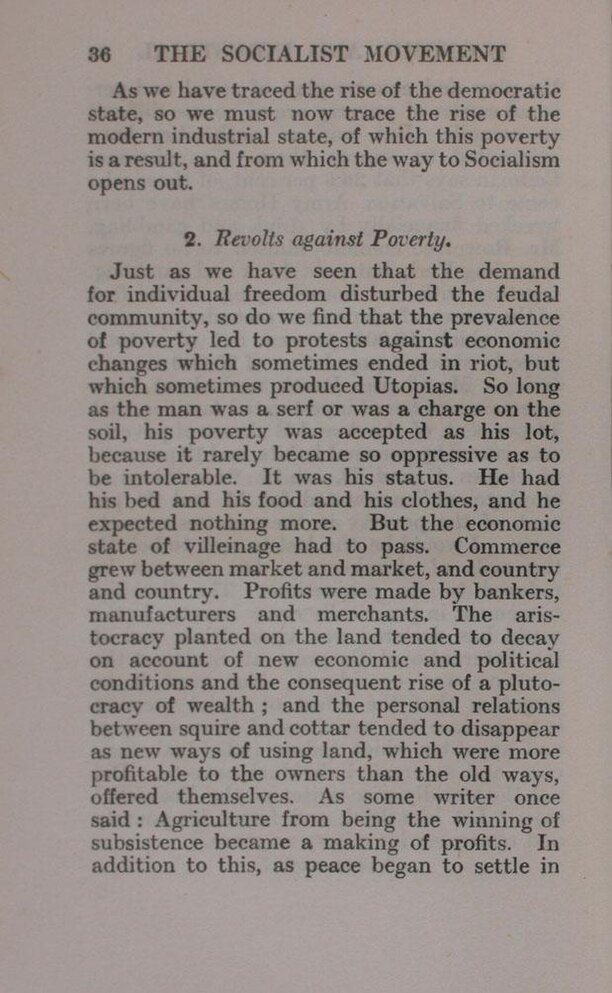As we have traced the rise of the democratic state, so we must now trace the rise of the modern industrial state, of which this poverty is a result, and from which the way to Socialism opens out.
2. Revolts against Poverty.
Just as we have seen that the demand for individual freedom disturbed the feudal community, so do we find that the prevalence of poverty led to protests against economic changes which sometimes ended in riot, but which sometimes produced Utopias. So long as the man was a serf or was a charge on the soil, his poverty was accepted as his lot, because it rarely became so oppressive as to be intolerable. It was his status. He had his bed and his food and his clothes, and he expected nothing more. But the economic state of villeinage had to pass. Commerce grew between market and market, and country and country. Profits were made by bankers, manufacturers and merchants. The aristocracy planted on the land tended to decay on account of new economic and political conditions and the consequent rise of a plutocracy of wealth; and the personal relations between squire and cottar tended to disappear as new ways of using land, which were more profitable to the owners than the old ways, offered themselves. As some writer once said: Agriculture from being the winning of subsistence became a making of profits. In addition to this, as peace began to settle in
